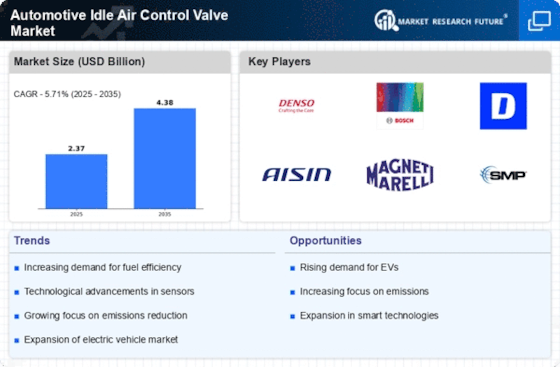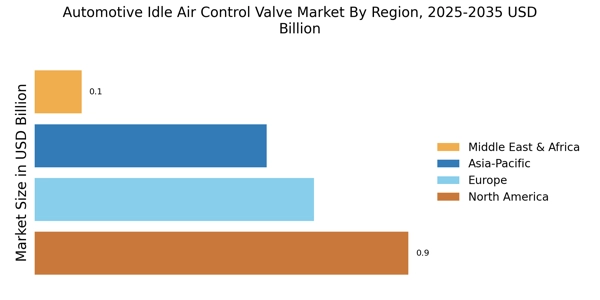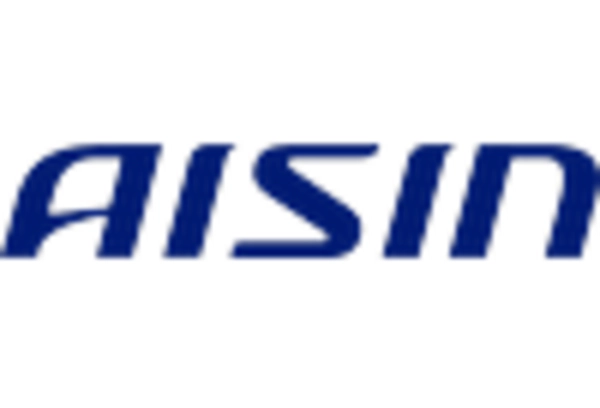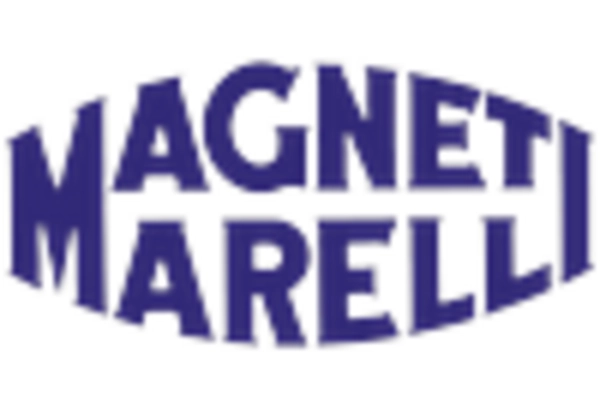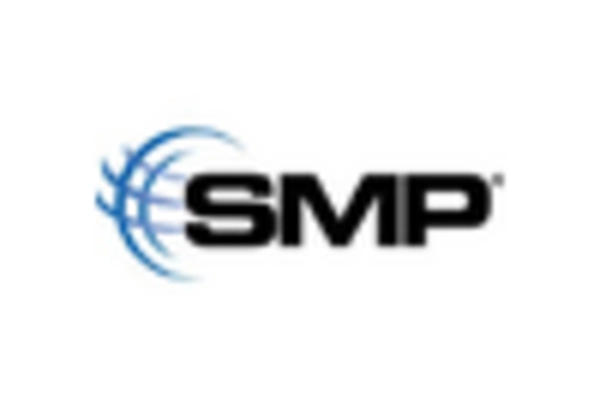Rising Vehicle Production Rates
The Automotive Idle Air Control Valve Market is poised for growth due to the rising production rates of vehicles across various segments. As manufacturers ramp up production to meet consumer demand, the need for reliable components, including idle air control valves, becomes paramount. Recent statistics indicate that vehicle production has seen a steady increase, with millions of units produced annually. This growth is particularly evident in emerging markets, where the automotive sector is expanding rapidly. Consequently, the demand for idle air control valves is expected to rise in tandem with vehicle production, creating a favorable environment for market players.
Growth of the Aftermarket Sector
The Automotive Idle Air Control Valve Market is benefiting from the growth of the aftermarket sector, which is becoming an essential component of the automotive landscape. As vehicles age, the demand for replacement parts, including idle air control valves, increases. This trend is particularly pronounced in regions with a high number of older vehicles still in operation. Market data suggests that the aftermarket for automotive components is projected to grow at a compound annual growth rate of over 5% in the coming years. This growth presents opportunities for manufacturers and suppliers of idle air control valves to capture a larger share of the market by offering high-quality replacement options.
Increasing Demand for Fuel Efficiency
The Automotive Idle Air Control Valve Market is experiencing a surge in demand driven by the increasing emphasis on fuel efficiency among consumers and manufacturers alike. As fuel prices fluctuate, vehicle owners are more inclined to seek solutions that enhance fuel economy. The idle air control valve plays a crucial role in regulating the air-fuel mixture, thereby optimizing combustion efficiency. According to recent data, vehicles equipped with advanced idle air control systems can achieve up to 15% better fuel efficiency compared to older models. This trend is likely to continue as regulatory bodies impose stricter emissions standards, compelling manufacturers to innovate and integrate more efficient idle air control valves into their designs.
Regulatory Pressure for Emission Reductions
The Automotive Idle Air Control Valve Market is under increasing pressure from regulatory bodies to reduce vehicle emissions. Governments worldwide are implementing stricter emissions standards, which necessitate the use of advanced technologies in vehicle components, including idle air control valves. These regulations aim to minimize the environmental impact of automotive emissions, pushing manufacturers to innovate and enhance the efficiency of their products. As a result, the demand for high-performance idle air control valves that meet these regulatory requirements is expected to rise, driving growth in the market.
Technological Innovations in Automotive Systems
The Automotive Idle Air Control Valve Market is significantly influenced by ongoing technological innovations in automotive systems. Advancements in electronic control units and sensor technologies have led to the development of more sophisticated idle air control valves that offer enhanced performance and reliability. These innovations not only improve engine responsiveness but also contribute to reduced emissions, aligning with global sustainability goals. As manufacturers increasingly adopt these advanced technologies, the market for idle air control valves is likely to expand, driven by the need for modern vehicles to comply with stringent environmental regulations.


